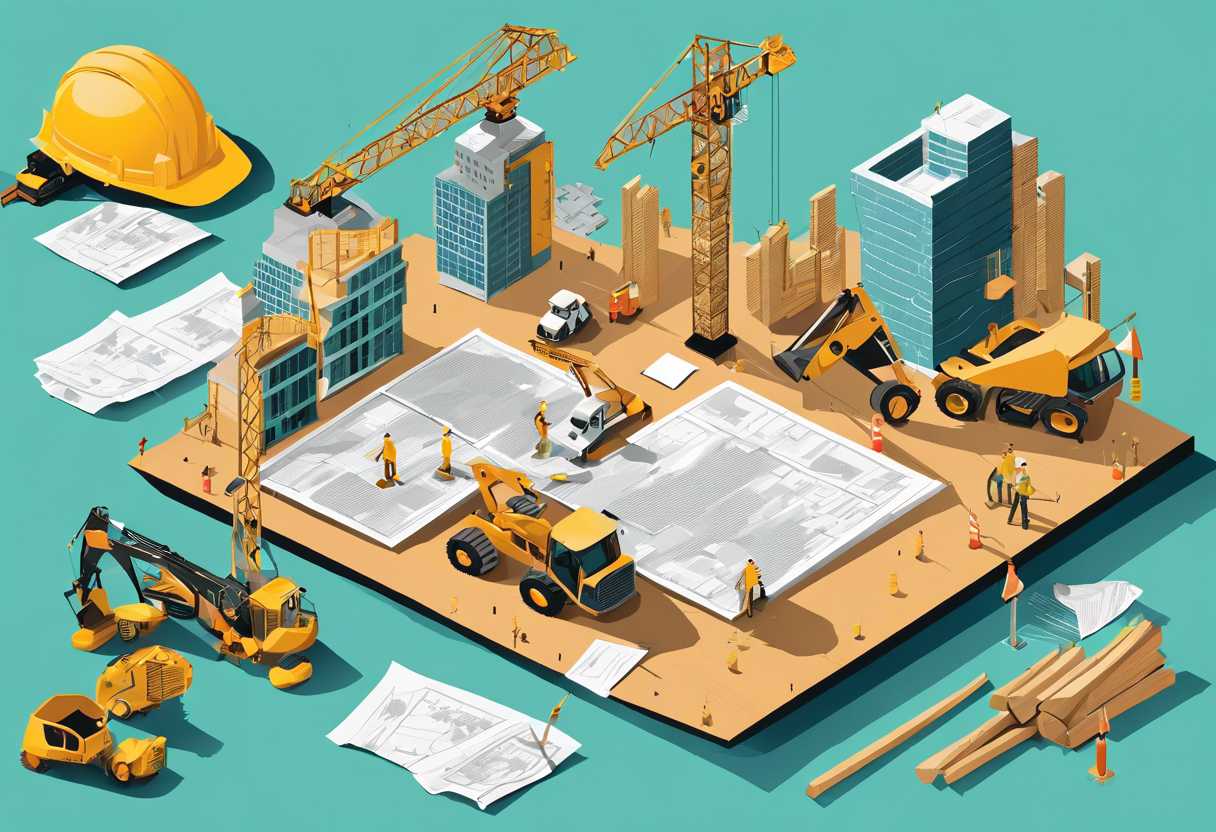Are you embarking on a construction project and concerned about staying within your budget? Managing expenses during the construction process can be a daunting task, but with the right strategies and cost-saving measures, it is possible to maximize your budget and stay on track. In this comprehensive guide, we will explore effective ways to plan your construction budget, implement cost-saving measures, and manage expenses to ensure a successful and budget-friendly construction project. Whether you are a homeowner, contractor, or project manager, these expert tips and considerations will help you navigate the construction process with confidence and financial stability. Let’s dive into the key considerations for staying within your budget during the construction process.
Planning Your Construction Budget: Tips and Strategies for Success
Understanding Your Project Scope
Before diving into the budgeting process, it’s crucial to have a clear understanding of your project scope. This includes the size of the construction, the materials needed, and any special requirements. By having a detailed scope, you can accurately estimate the costs involved and avoid any surprises down the line.
Researching and Comparing Costs
Once you have a clear project scope, it’s time to research and compare costs for materials, labor, and any other expenses. Take the time to gather quotes from multiple suppliers and contractors to ensure you’re getting the best value for your money. *Comparing costs can help you identify potential cost-saving opportunities without sacrificing quality.*
Creating a Contingency Plan
Even with thorough planning, unexpected expenses can arise during construction. It’s essential to include a contingency plan in your budget to account for any unforeseen costs. *A general rule of thumb is to set aside 10-20% of your total budget for contingencies.* This buffer can provide peace of mind and prevent financial strain if unexpected issues arise.
| Material | Supplier A | Supplier B |
| Concrete | $100/ton | $120/ton |
| Lumber | $500/cubic meter | $480/cubic meter |
- Compare costs from at least three different suppliers for each material.
- Obtain detailed quotes that include delivery and any additional fees.
- Consider the quality and reputation of the suppliers when making your decision.
- Review your project scope and identify any potential areas for cost savings.
- Research and gather quotes from multiple suppliers and contractors.
- Create a contingency plan to account for unexpected expenses.

Cost-Saving Measures for Construction Projects: A Comprehensive Guide
Efficient Project Planning
One of the most effective cost-saving measures for construction projects is efficient project planning. By carefully outlining the scope of work, setting realistic timelines, and identifying potential risks, project managers can minimize unexpected expenses and delays. Utilizing advanced project management software can also streamline communication and coordination among team members, further optimizing the planning process.
Value Engineering
Value engineering is a systematic approach to improving the value of a project by analyzing its functions and reducing unnecessary costs. By re-evaluating design elements, materials, and construction methods, project teams can identify opportunities to achieve the same quality results at a lower cost. This approach not only helps to reduce expenses but also enhances the overall efficiency and sustainability of the project.
Strategic Supplier Partnerships
Establishing strategic partnerships with reliable suppliers can significantly reduce construction project costs. By negotiating favorable pricing, bulk discounts, and favorable payment terms, project teams can secure the best value for materials and equipment. Additionally, maintaining long-term relationships with suppliers can lead to improved service and support, further contributing to cost savings and project success.

Effective Ways to Manage Expenses During the Construction Process
Budgeting and Planning
One of the most effective ways to manage expenses during the construction process is through thorough budgeting and planning. This involves creating a detailed budget that outlines all the costs associated with the project, including materials, labor, permits, and any unexpected expenses. By planning ahead and anticipating potential costs, you can avoid overspending and keep the project on track.
Prioritizing Cost-Effective Materials and Methods
Another key strategy for managing expenses during construction is to prioritize cost-effective materials and methods. This may involve researching and comparing different materials and construction techniques to find the most affordable options that still meet your project’s requirements. Additionally, considering energy-efficient and sustainable materials can help save money in the long run through reduced maintenance and utility costs.
Regular Monitoring and Adjustments
Once the construction process is underway, it’s crucial to regularly monitor expenses and make adjustments as needed. This may involve tracking actual costs against the budget, identifying any areas of overspending or potential savings, and making necessary changes to keep the project within budget. By staying proactive and responsive to financial developments, you can avoid costly surprises and maintain control over expenses.
Maximizing Your Budget: Key Considerations for Construction Budgeting
Understanding Project Scope and Requirements
One of the most crucial aspects of construction budgeting is understanding the project scope and requirements. This involves a thorough analysis of the project’s goals, timeline, and specific needs. By having a clear understanding of these factors, you can accurately allocate resources and avoid unnecessary expenses.
Identifying Potential Cost Savings
Identifying potential cost savings is essential for maximizing your construction budget. This involves evaluating different materials, suppliers, and construction methods to find the most cost-effective options without compromising quality. Additionally, considering energy-efficient and sustainable solutions can lead to long-term savings on operational costs.
Collaborating with Experienced Professionals
Collaborating with experienced professionals, such as architects, engineers, and contractors, can provide valuable insights and expertise in construction budgeting. Their knowledge of industry trends, best practices, and potential challenges can help you make informed decisions and avoid costly mistakes. By leveraging their expertise, you can optimize your budget and achieve the desired results.
Budget-Friendly Construction: Expert Advice for Staying on Track
Planning and Budgeting
When it comes to budget-friendly construction, proper planning and budgeting are essential. Before starting any project, it’s crucial to have a clear understanding of your budget and what you can realistically afford. This means taking into account not only the cost of materials and labor but also any unexpected expenses that may arise. By creating a detailed budget and sticking to it, you can avoid overspending and keep your project on track.
Value Engineering
Value engineering is a method used to analyze the functions of a project and find ways to achieve the same results at a lower cost. This can involve re-evaluating the materials and methods used in construction to find more cost-effective alternatives without sacrificing quality. By working with a team of experienced professionals, you can identify areas where cost savings can be achieved without compromising the integrity of the project.
Efficient Project Management
Efficient project management is key to keeping a construction project on budget. This involves careful scheduling, coordination of resources, and effective communication among all parties involved. By staying organized and proactive, you can minimize delays and avoid costly mistakes that can eat into your budget. Utilizing project management software and tools can also help streamline processes and keep everything running smoothly.
Conclusion
Staying within your budget during the construction process is crucial for the success of your project. By following the tips and strategies outlined in this blog post, you can effectively plan your construction budget, implement cost-saving measures, manage expenses, and maximize your budget for a successful construction project.
Remember to prioritize essential elements and make informed decisions to avoid unnecessary expenses. By working closely with your construction team and staying proactive in monitoring your budget, you can ensure that your project stays on track financially.
Ultimately, staying within your budget during the construction process requires careful planning, effective management, and a commitment to finding budget-friendly solutions. By implementing the expert advice provided in this blog post, you can navigate the construction process with confidence and achieve your project goals without overspending.
For more personalized guidance on staying within your budget during the construction process, don’t hesitate to reach out to our team of construction experts. We’re here to support you every step of the way and help you achieve a successful and cost-effective construction project.
Thank you for reading, and best of luck with your construction endeavors!

